 A Ukrainian convoy of refrigerator trucks carrying the bodies of Russian soldiers is moving toward the northeastern border with Russia. Photo: KOSTYANTIN CHERNICHKIN/KOSTYANTIN CHERNICHKIN
A Ukrainian convoy of refrigerator trucks carrying the bodies of Russian soldiers is moving toward the northeastern border with Russia. Photo: KOSTYANTIN CHERNICHKIN/KOSTYANTIN CHERNICHKIN
On a gloomy February morning, the convoy drove through the Sumy region in northeastern Ukraine.
A police car led the way, followed by a team of forensic experts and a refrigerated van carrying the corpses of dozens of Russian soldiers.
The delegation was heading into Russian territory for one of the only levels of diplomacy in operation. between Kiev and Moscow: exchange of corpses on both sides.
When cars passed through villages approaching the border, traffic stopped to clear the road.
The boy stood next to the road and waved his hand. Ukrainian prisoners of war are taken from Russian territory along the same route, and local residents line the streets to welcome returning fighters.
“He thinks we are going to collect prisoners of war,” said Vitaly Matvienko of Ukrainian military intelligence.< /p>
But once on Russian territory, this convoy will begin a grimmer task: transporting its cargo of corpses, and then replenished with the bodies of Ukrainian soldiers.
The Telegraph noticed how the convoy entered Russian territory, but did not cross the border.
Although there is a ceasefire in place during the exchange, which takes less than an hour, the process is nonetheless tense.
The border road must be cleared of mines to allow the vans through, and mined again as soon as they return.
 Ukrainian border guards mine the road as refrigerated vans return after the process of exchanging bodies at the checkpoint Photo: Konstantin Chernichkin/Konstantin Chernichkin
Ukrainian border guards mine the road as refrigerated vans return after the process of exchanging bodies at the checkpoint Photo: Konstantin Chernichkin/Konstantin Chernichkin
Russian troops regularly shell the area, and snipers hide behind trees at the edge of the fields, watching the firefight.
At the border, forensic experts from the International Committee of the Red Cross (ICRC) carried out random checks of bodies.
Vans with the corpses, they then crossed Russian territory to meet with their colleagues from Ukraine. Rescuers, Ukrainian security services and ICRC representatives.
“We are going to their side because we don’t want Russian vehicles on our territory,” Mr. Matvienko said. «It's a risk, of course, but it's less than if they came here.»
The repatriation of dead Ukrainian soldiers from territories now occupied by Russia is part of a huge effort by Ukrainian government authorities to find and identify some of them. more than 24,000 registered missing Ukrainian soldiers and thereby help their loved ones.
In total, 2,495 bodies of Ukrainian soldiers were returned during these exchanges, General Dmitry Usov said. head of the Ukrainian coordination center, which oversees the corridor tel.
“This corridor is the only way to return our fallen home,” Mr. Usov said. “This [not only] means that all those who died will be buried with dignity in Ukraine, [but also] that their relatives and all concerned citizens of our country will be able to express their respect.”
The bodies themselves are found by soldiers on both sides — often at great risk, in heavily mined areas or in no man's land between two front lines. Several soldiers were wounded and killed trying to save their fallen comrades.
 Scientists in a Kiev laboratory are working with biological samples from Ukrainian soldiers, to obtain material for DNA identification. Photo: KOSTYANTIN CHERNICHKIN/KOSTYANTIN CHERNICHKIN
Scientists in a Kiev laboratory are working with biological samples from Ukrainian soldiers, to obtain material for DNA identification. Photo: KOSTYANTIN CHERNICHKIN/KOSTYANTIN CHERNICHKIN
At the meeting between the two sides, Ukrainian security services, who, as part of the conditions, travel unarmed in ICRC vehicles, exchange lists of identifying marks of Russian soldiers and, if documented, their names. At the same time, rescuers from both sides are unloading and loading the dead.
“The ICRC’s presence at the exchange site is intended as a safety signal for both sides,” said Jürg Eglin, head of the ICRC Operation in Ukraine, exchange.
p>
According to the Geneva Conventions, the exchange of corpses and prisoners of war is allowed only after the war. But in the Russian-Ukrainian war, the exchange of both began in earnest after the first six months.
In the summer of 2022, the ICRC, which has offices on both sides, brought the two states together to discuss the bodies on the wrong side. Then they helped assemble the corridor, said Oleg Kotenko, who was in charge of the body exchange at the time.
“The Russians called me and started telling me how they were going to bury our guys in certain places in Russia. and I said why? Let’s just change,” said Mr. Kotenko.
When the column returned from the border, it became known that it was carrying fallen soldiers, and the villagers came out to pay their respects.
 Residents villages kneel to pay respects to slain Ukrainian soldiers being transported in refrigerated vans after exchanging bodies on the Russian border. Photo: KOSTYANTIN CHERNICHKIN/KOSTYANTIN CHERNICHKIN
Residents villages kneel to pay respects to slain Ukrainian soldiers being transported in refrigerated vans after exchanging bodies on the Russian border. Photo: KOSTYANTIN CHERNICHKIN/KOSTYANTIN CHERNICHKIN
Families knelt together in the snow, and elderly people stood at the gates of their houses. at home with folded hands. Many blushed and cried.
So far, the exchange of bodies, unlike the trade in prisoners of war, has continued without interruption. Once the bodies are returned to Ukraine, the identification process could take anywhere from 10 days to a year or more, officials say.
Maxim Fedorenko, head of the Cherkasy region morgue, one of several morgues that handle repatriated bodies, said that the delay was usually due to the condition of the bodies and the collection of DNA samples from relatives.
Cause of death
Most of the repatriated bodies are unrecognizable: charred, rotten and mutilated by explosives.
After the bodies are exchanged — between 60 and 100 soldiers at a time — they are sent straight to the morgue for processing. The undertaker and investigators note all physical details, take photographs, extract DNA, create dental records and determine the cause of death.
Priority is given to those few whose documents are preserved or physically well preserved.
Given the time required to defrost a body and the mortuary's ability to examine three to four bodies a day, processing one repatriation load takes the morgue a month to six weeks.
After processing the body, pieces of skin, hair or tissue are sent to DNA extraction at government laboratories, a process that takes about four days. According to Ukrainian legislation, DNA certification is a mandatory part of the identification process of all dead soldiers.
However, the condition of the repatriated bodies means that DNA samples are often of poor quality and sometimes impossible to obtain. If the first sample does not provide enough data, laboratory doctors can either take another part of the sample for testing or request additional samples from the mortuary. Then the bodies need to be thawed again, another sample taken and work started again.
“The main thing is not to make mistakes,” says Vasily Aksenov, head of the DNA testing department of the Cherkassy branch. police, explaining why the procedure cannot be expedited.
Acute staff shortages
Another question is DNA samples from relatives. When relatives are notified that a soldier is missing in action, they are asked to provide DNA samples — a system that has improved since the early stages of the war but is nonetheless imperfect. Some labs and local police are facing severe staffing shortages and swabs may not be taken correctly, officials say.
Konstantin Dubonos, deputy head of Ukraine's State Bureau of Forensic Medicine, said Ukraine has trained 1,500 laboratory doctors and opened 13 laboratories since the invasion, with plans to open five more this year. The increased capacity, he said, will mean relatives will hear sooner.
«Operation has increased year on year by 90 percent,» Mr. Dubonos said. “Even if the war ends now, with repatriation and discovery, we will have enough work for a decade to come.”
But another factor slowing this process and beyond the control of the authorities is that some relatives refuse to give DNA samples, wanting to believe that their loved ones are alive and in captivity. According to Dubonos, even relatives of those who were identified and buried came back asking for additional DNA tests.
Nikolai Shatnyuk, a 33-year-old soldier of the 72nd Ukrainian Brigade, was killed in Volnovakha. Donetsk region, at the end of October 2022 and exchanged through the corridor a little over a month later, at the beginning of December 2022. But his body was handed over to the family only six months later, in July 2023.
 Family shrine of Nikolai Shatnyuk, 33-year-old a soldier who died in battle and whose body was repatriated through the corridor. Credit: Konstantin Chernichkin
Family shrine of Nikolai Shatnyuk, 33-year-old a soldier who died in battle and whose body was repatriated through the corridor. Credit: Konstantin Chernichkin
His wife Alina, who had been his childhood sweetheart since she was 13, teamed up with the wives of 25 men from Nikolai's squad who also disappeared that day to find her husband.
For six months, Alina, along with other wives, searched Russian posts for prisoners of war and sought news through all possible channels in Ukraine and international organizations, as well as relatives in Russia.
Lack of laboratories
Then in late April she was notified of a possible DNA match. Her husband's brother provided the first sample, and to be sure, she was asked to provide her son's sample. At the time, the lack of laboratories in Ukraine and power outages meant that two samples could not be processed simultaneously. “When they said it was a coincidence: that’s it. I screamed and cried,” Alina said.
Two months later, the second DNA sample turned out to be a complete match, and Nikolai’s body was released and buried.
 Alina with her two children, 14-year-old Anya and four-year-old Ignat
Alina with her two children, 14-year-old Anya and four-year-old Ignat
Part of the problem was the length of time, but another was that Nicholas's comrades and their commander refused to tell their wives what had happened, so they hoped they were still alive. «They couldn't say he was dead because where was the body?» she remembered.
Only after the body was freed did she tell how her husband’s position was surrounded while heavy equipment was being transferred for the Kherson counter-offensive.
Nikolai was a contract soldier in the army. He has been away since 2014. For the first two months of the war he was stationed in the Kyiv region. But in May 2022, he volunteered to serve on the so-called “zero line” in the Donetsk region.
“He didn’t tell me that he was going to the zero line, because he knew that I would have tied him here,” Alina said “He was like a rock to me… and he was brave, nothing she’s afraid.”
According to her, Nikolai tried to prepare Alina for possible death by sending her numbers of people she could call and asked her to take a driving test.
p>< p>For his service in December, Nikolai received a medal for courage. He is survived by two children — 14-year-old Anya and four-year-old Ignat, who, according to Alina, is a “copy” of his father. When Alina asks Ignat who his father is, he shouts: “Hero!”
The wives of 25 men agreed to hold a memorial service at the place where their husbands were surrounded during the clearing of the territory. deoccupied,” said Alina.
“I thank God that he returned the body, that we have it,” she said. “We know that we must go to church to find peace, and not look for it among the living [prisoners of war]. But at the same time, I don’t believe it, I don’t want to believe that it’s true.”








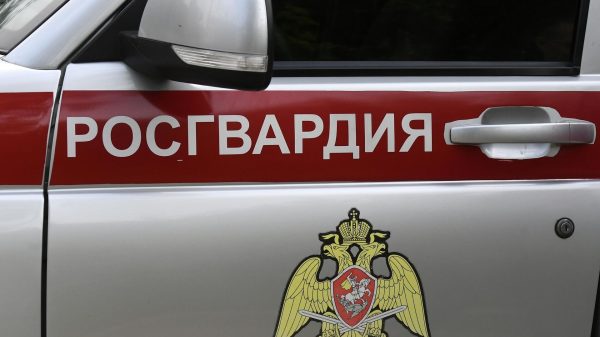
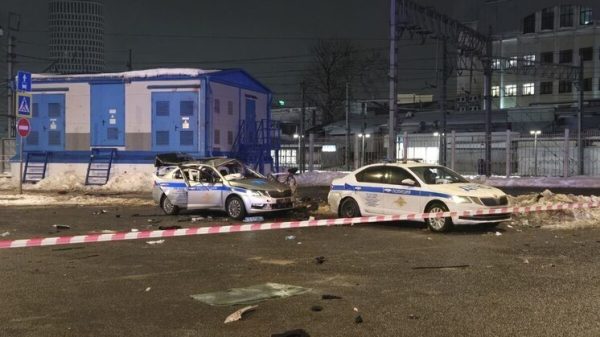

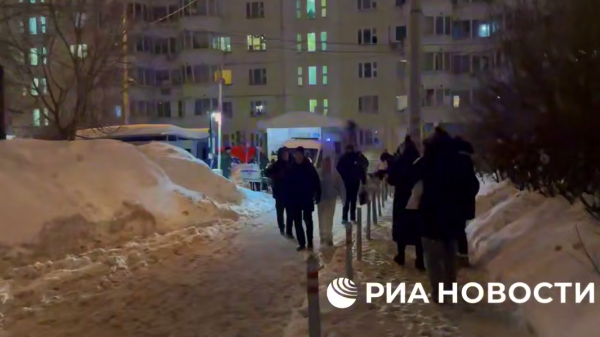



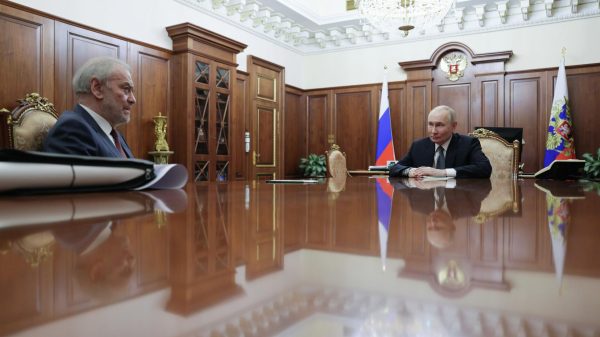


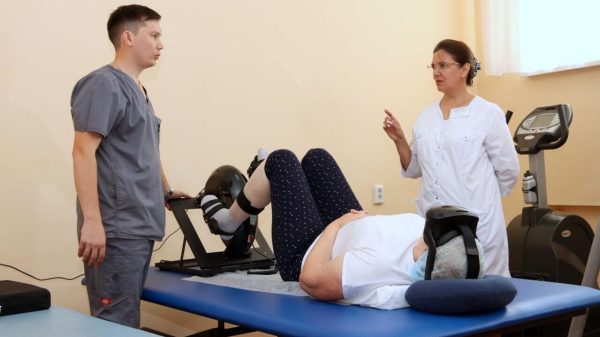
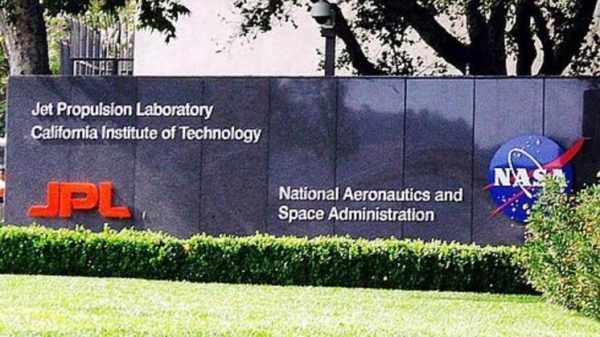
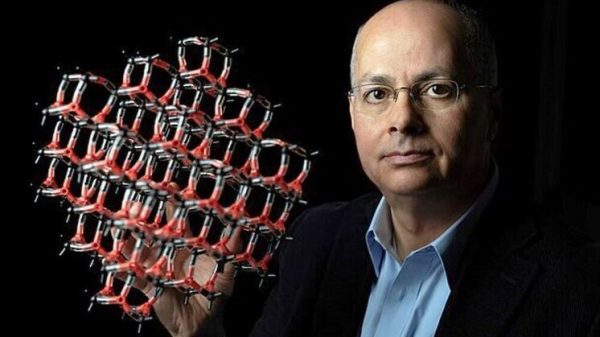
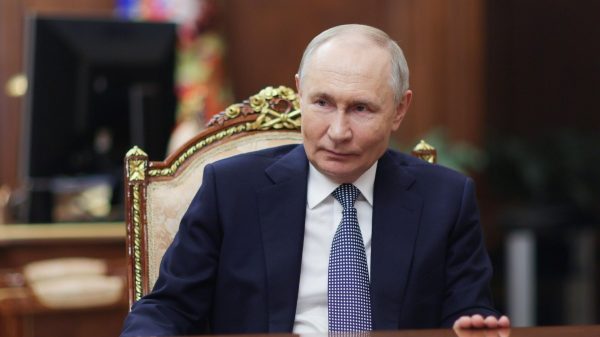
































Свежие комментарии